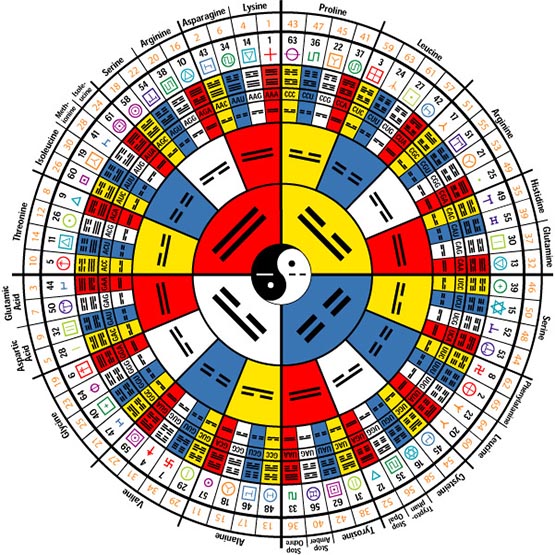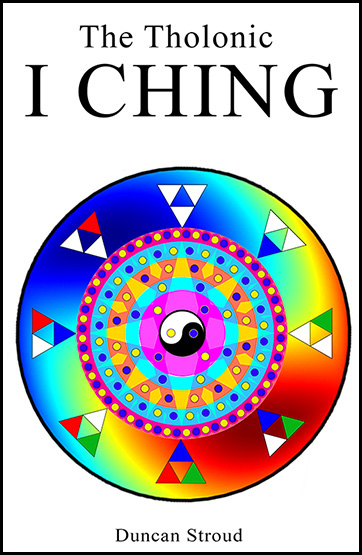I Ching
The ancient Taoist book that is the first technical manual of the mechanics of reality. While it is wrapped in law and morality (mostly due to the influence of Kong Qiu (a.k.a Confucius), who worked for the State), at it’s core it’s pure math and pattern.
The current and popular interpretation of the I Ching is based on Confucian philosophy. However, there is said to have been a different interpretation written by Lao Tzu (6th century BC), but no record of that seems to have survived. Confucius (551 to 479 BC) was employed by the State, which had an interest in spreading Confucius philosophy and ideas of based on morals and ethics, and this philosophy is the basis of the modern I Ching. However, when Confucius asked Lau Tzu about the Rites, Lao Tzu replied:
“You speak of men who have long decayed together with their bones. Nothing but their words has survived. When a Gentleman is in tune with the times, he rides a carriage; when he is out of tune, he makes his way disheveled as he is. I have heard that just as the best merchant keeps his stores hidden so that he appears to possess nothing, so the True Gentleman conceals his abundant Inner Power beneath an appearance of foolishness. Rid yourself of Pride and Desire, put aside your fancy manner and your lustful ways. They will bring you nothing but harm. That is all I have to say.” (Sima Qian, ca. 145–86 BC, the Grand Historian).
This tells us that the Lao Tzu version of the I Ching was more about the Way of the Tao, not about morals and ethics. This is consistent with the sentiments of the Taoist Master Lui Yiming, who said :
“After meeting genuine teachers all my doubts disappeared, so that for the first time I realized that the Tao of spiritual alchemy is none other than the Tao of I-Ching, the Tao of sages is none other than the Tao of immortals, and that the I-Ching is not a book of divination, but rather a study of investigation, of principles, fulfillment of nature, and arrival at the meaning of life.”.
… and the Taoist Master Lu Dongbin, who also said:
“Although the words are very clear, yet they are also very vague. The shallow may take the I-Ching to be a book of divination, but the profound consider it the secret of the Celestial Mechanism.”
The Tholonic I Ching attempts to deconstruct the patterns and the symbolism to its most basic concept of duality. Then, using the relationships that naturally form during the binary progression, we redefine each line and hexagram, exposing the original meaning and significance of this ancient manual.
Download a preview of the book HERE
(CURRENTLY IN DRAFT, and only 1st half written).

